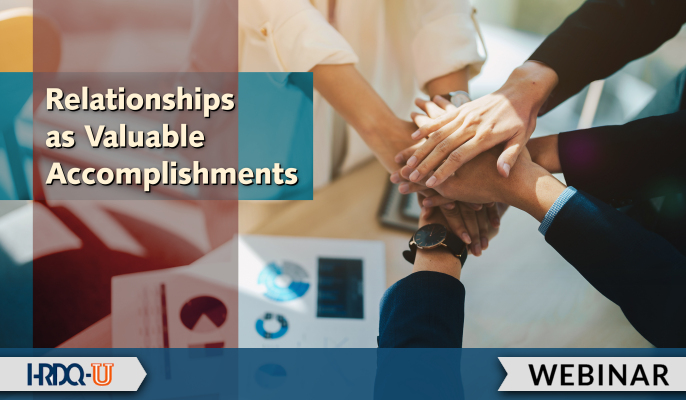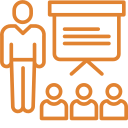Reflect, for a moment, on how we evolved and how most of us live today. Our ancestors lived in extended, multi-generational families, often in villages and towns with other families with whom they interacted everyday. Our language and social behavior evolved under those conditions. We learned how to handle conflict, live with other genders, express appreciation, and cooperate for survival and prosperity. Humans learned these things living in relative crowds, compared to the average American family size today of 3.13 people, down from 3.7 people a few years ago. In a family with two parents, an average head count of 3.13 means barely more than one child. This is social isolation compared to how we evolved when smart and agile primates in cooperative groups could survive around larger and stronger predators. Being social animals gave us strength.
Maybe this has always been true, but these days, the topic of relationships seem to have become a big one in personal and professional conversations, often seeming to involve complication and pain. Our popular music describes happy and unhappy relationships. Our movies dramatize how people relate to one another. Therapists spend enormous amounts of time helping people have better personal and professional relationships. Our happy and productive work lives depend on having at least amicable and, ideally, mutually enhancing relationships. We need to have good connections with others. And yet, we struggle, so often distracted by one or more relationships that are lacking.
As a thought experiment, try listing all the important relationships that you have by name. Now check off the ones that you consider to be good or better than most of the others. What is it about these relationships that makes them good? Why are you happy or satisfied with these relationships and not so much with others? Can you identify the characteristics of those relationships that make them good? Taking a few moments to describe what’s good about each of our relationships is an important first step toward improving them all. At that point, we might pause for a moment to feel grateful for the good ones. Not all of our relationships are good, and sometimes they come and go. So, it can make us a little happier to feel gratitude for the best ones.
Now, take another look at your list and check off the relationships that need most improvement, the ones that you do not consider to be particularly good at the moment. Are there some? Most people have a few at work or in their personal lives. Reflect on how they would look if they could be transformed into good ones?
By clarifying what characteristics make some relationships good and others not so good, we can pinpoint what needs to change. The contrasts between the best and the not-so-good may help us take a more objective look at what’s going well and what’s not and what we can do to improve. In a professional context, we might call this a gap analysis. It can put us on the path to improvement, which we’ll discuss in a follow-up blog post and in our upcoming webinar.
Perhaps most immediately, when we think about our best relationships and what is good about them, we will see more than ever how truly valuable they are. We may come to a greater realization of how so much of our lives depend on how we relate to others and how grateful we are when those human connections are authentic, positive, humane, and productive.
















